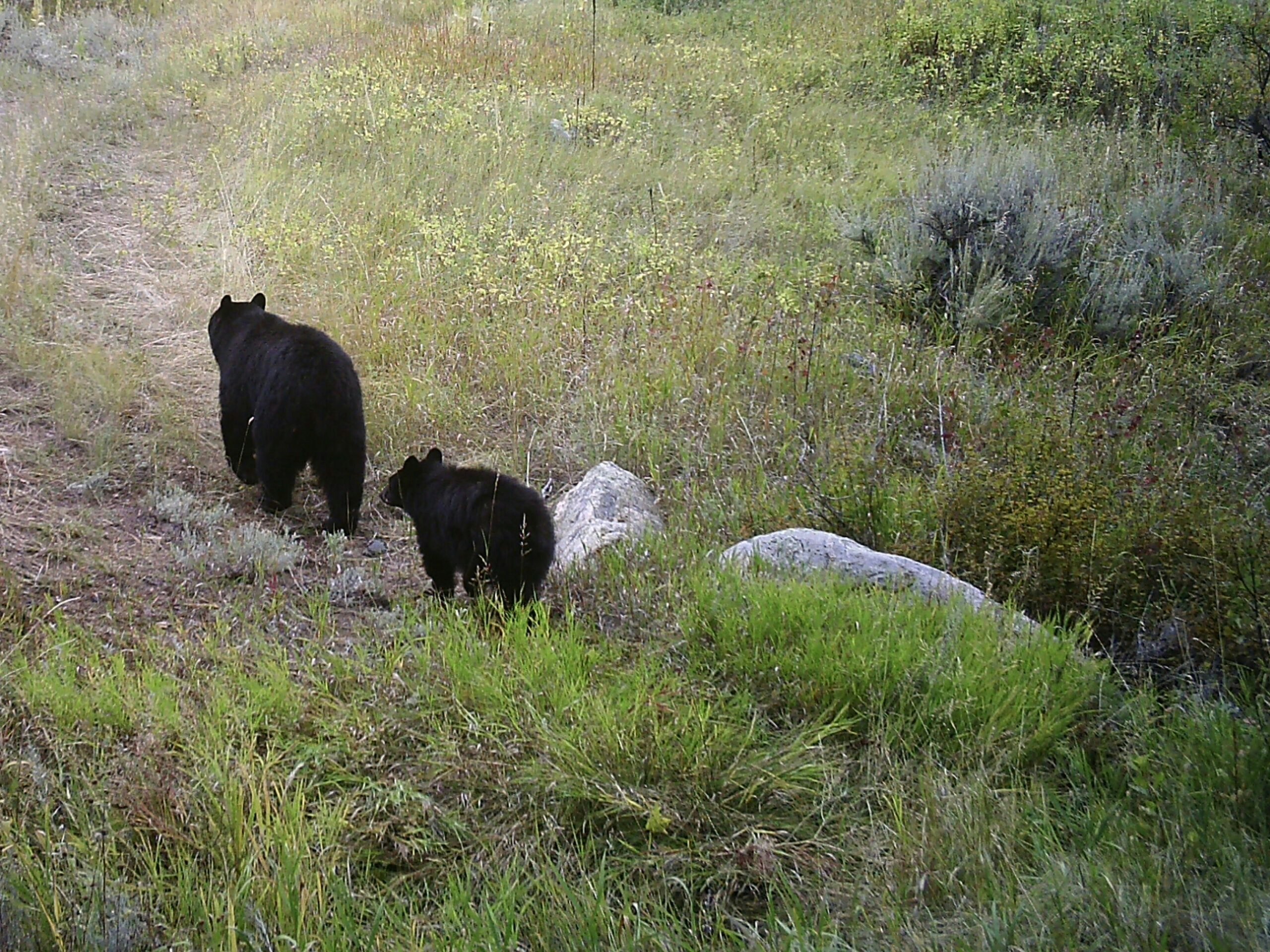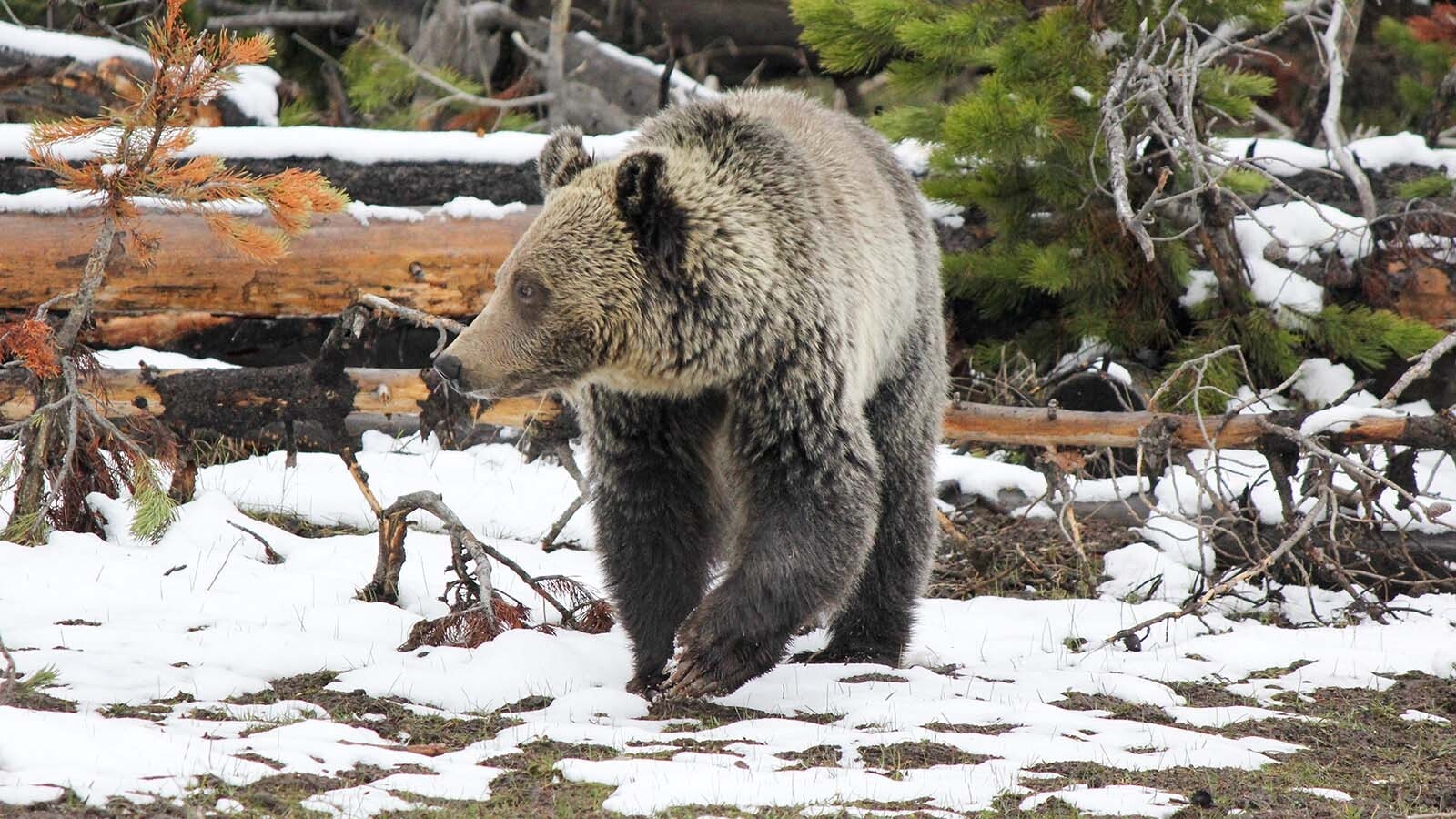Sy Gilliland isn’t even entertaining the idea of how his business would be affected if a lawsuit that aims to end bear baiting in Wyoming is successful.
“The state of Wyoming is going to be shoulder-to-shoulder with the outfitting industry,” said Gilliland, president of the Wyoming Outfitters and Guides Association and owner of SNS Outfitter & Guides. “(The lawsuit) is frivolous. It’s not based upon sound science.”
The lawsuit was filed against the U.S. Forest Service and U.S. Fish and Wildlife Service in June by environmental groups Wilderness Watch, Western Watersheds Project and WildEarth Guardians. The groups claim that using food to bait black bears for hunting poses a threat to grizzly bears in Wyoming and Idaho, where grizzlies are protected under the Endangered Species Act.
Last month, federal officials filed a motion to dismiss the lawsuit, citing previous agreements allowing the states to regulate bear baiting through their own wildlife management agencies, even if the practice occurs on national forest land. The plaintiffs say that’s not a solid argument.
“The states get to regulate hunting; however, if you want to create a food dump on federal land, you need a permit,” Erik Molvar, executive director of Western Watersheds Project, said Monday. “It’s not really a matter of legal debate.”
By early December, the lawsuit remained in U.S. District Court in Idaho.
At the crux of the lawsuit are questions over whether grizzly bears in Wyoming and Idaho still need to be protected. The bears in the Greater Yellowstone Ecosystem were deemed “threatened” by the U.S. Fish and Wildlife Service in 1975, and federal agencies have been in and out of court over the last decade as grizzlies have been repeatedly removed and relisted as a threatened species. Most recently, protections were removed in 2017 and reinstated in 2018.
In the lawsuit, the conservation groups claim legal baiting of black bears also entices grizzlies into hunt areas. The groups cite eight instances in the last 24 years where black bear hunters have mistakenly killed grizzlies at bait sites.Rebekah Fitzgerald, communications director for Wyoming Game and Fish Department, said the agency works hard to educate hunters on distinguishing the two species.
Additionally, Fitzgerald said, there are existing regulations in Wyoming regarding where bait can be used. Approved sites are outside of known grizzly bear range.
“If a grizzly is seen at a (bait) site, it will be closed for the season,” Fitzgerald said. “We continue to use black bear baiting because we believe it’s a tool to harvest black bears and do it selectively.”
Fitzgerald declined to comment further, citing the pending litigation.
According to Game and Fish Department research, the grizzly bear population continues to expand outside of the recovery zone in northwest Wyoming that was designated in a species recovery plan in 1993.
In the lawsuit, baiting opponents claimed the Forest Service may not be able to accurately judge potential threats to grizzlies because it has not conducted a comprehensive environmental assessment of the species since the mid-1990s. The Forest Service maintains nothing has occurred to trigger the National Environmental Policy Act which would require an updated assessment.
“Grizzly bear populations in the Greater Yellowstone Ecosystem are tenuous at best,” Molvar, the Western Watersheds leader, told Cowboy State Daily. “Certainly a better understanding of grizzly bear ecology and human/grizzly interaction is beneficial to everyone.”
Outfitter Gilliland can agree on that — sort of. He believes the population could be double the estimated 600 or so bears in Wyoming, second only to Montana’s estimated 800 bears.
“I would really love to see the truth come out about grizzly numbers,” Gilliland said. “The available grizzly habitat in Wyoming is full to the point of overflowing. We’re doing these bears a huge disservice by not managing them.”
Managing grizzlies — and all other wildlife — falls to the states. If the lawsuit against the federal agencies is dismissed, Molvar said he doesn’t feel a similar lawsuit against Wyoming and Idaho’s state agencies would be effective.
“We don’t think the states have the same requirement to protect the wildlife that the feds do,” he said.
And while Gilliland said he believes the suit is a veiled attempt to end all bear hunting in Wyoming, Molvar said Western Watersheds “has no stance, pro or con, on hunting.”
But he said he does feel it would behoove hunters to discontinue baiting on their own.
“I think it’s to the hunting community’s advantage to get rid of practices like bear baiting that are objectionable to the general public,” Molvar said.
Gilliland doesn’t plan to do that anytime soon. He echoed Wyoming Game and Fish’s stance on baiting.
“There’s a misunderstanding that you drop a bucket of jelly donuts (in the woods) and the bears start running in and you pick ‘em off,” Gilliland said. “Black bears are stealthy, and it would be very difficult to manage them by any means other than baiting.”





